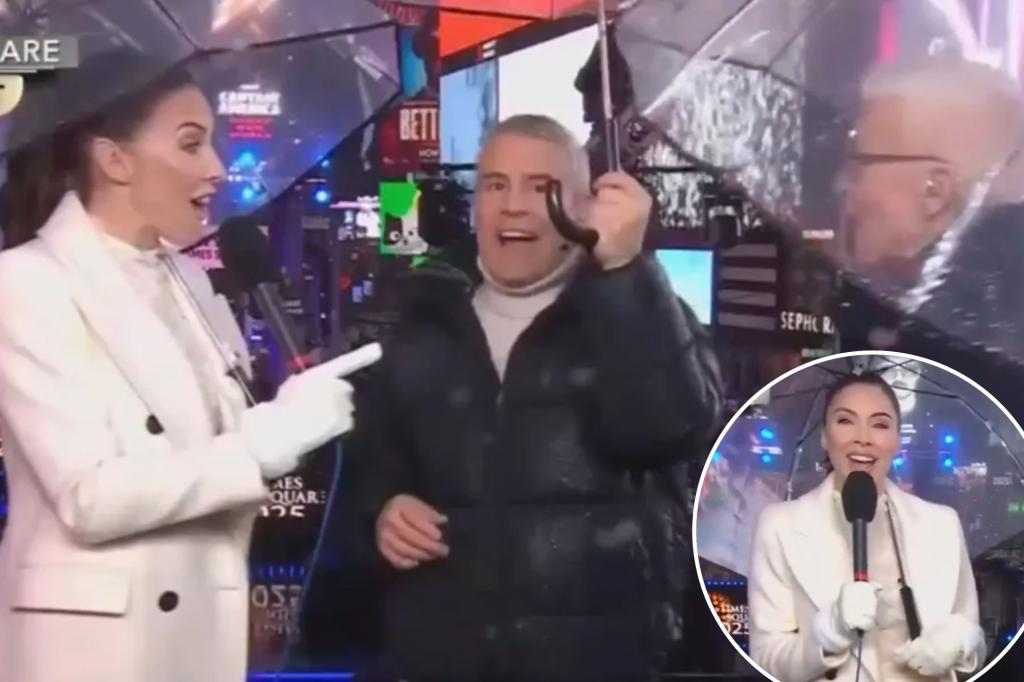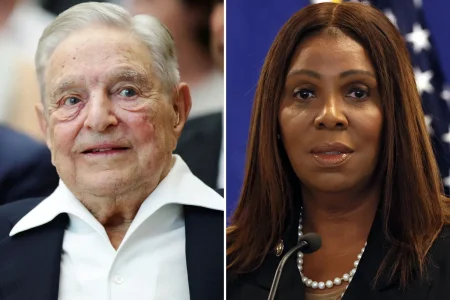Whitney Cummings’s blistering roast of CNN and the Democratic Party during the network’s New Year’s Eve special has ignited a viral firestorm, garnering millions of views and sparking widespread discussion about the state of political discourse and media coverage. Her performance, characterized by sharp wit and unflinching criticism, targeted CNN’s dwindling viewership and the Democratic Party’s perceived shortcomings in fielding a robust presidential candidate. The comedian’s bold pronouncements have resonated with many viewers, who see her commentary as a refreshing dose of honesty in a politically charged landscape.
Cummings’s initial salvo was aimed at CNN itself, a network grappling with declining viewership and a tarnished reputation in some circles. Her jab about performing in 3,000-seat theaters, comparing it to CNN’s current viewership, highlighted the network’s struggles to attract an audience. This self-deprecating yet pointed remark set the tone for her subsequent critique of the Democratic Party, positioning her as someone willing to challenge established institutions.
The comedian then shifted her focus to the Democratic Party, specifically targeting its handling of the 2024 presidential election. She argued that the party failed to offer voters a genuine choice of candidates, instead defaulting to President Biden’s reelection bid despite his advanced age. Cummings characterized this decision as “holding up a body,” implying that Biden’s candidacy was propped up by the party establishment rather than genuine enthusiasm from the electorate. This criticism resonated with those who feel the party has become stagnant and out of touch with the concerns of ordinary Americans.
Cummings further amplified her critique by highlighting the perceived imposition of Vice President Kamala Harris as Biden’s running mate. Her pointed joke about Harris being “forced on us so hard you’d think she was patented by Pfizer” drew a parallel between the mandates surrounding COVID-19 vaccines and the seemingly predetermined nature of Harris’s selection. This comparison resonated with a segment of the population skeptical of both vaccine mandates and the perceived lack of choice within the Democratic Party.
The comedian’s performance sparked significant online engagement, with a clip of her remarks garnering millions of views and generating heated debate. Cummings herself doubled down on her statements, challenging critics to identify any factual inaccuracies in her commentary. Her defiant stance and insistence on accountability have further fueled the online conversation, solidifying her image as a fearless commentator willing to challenge powerful institutions.
The incident underscores a broader trend of comedians using their platforms to engage in political commentary, often bypassing traditional media outlets to connect directly with their audiences. Cummings’s willingness to criticize both CNN, the platform she was appearing on, and the Democratic Party, a traditionally aligned institution, demonstrates a shift towards more independent and critical voices in the entertainment sphere. This event also highlights the growing influence of social media in disseminating political messages, as Cummings’s remarks spread rapidly online, reaching a far wider audience than a traditional television broadcast. The incident has sparked a broader conversation about the role of comedians in political discourse, the challenges facing traditional media outlets, and the evolving dynamics of political engagement in the digital age. Cummings’s performance serves as a potent example of how humor can be used to deliver pointed political commentary, resonating with audiences who feel increasingly disenfranchised by the established political order.











